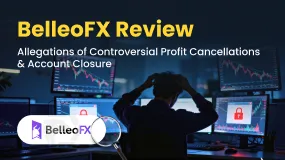Abstract:South Korean authorities recently dismantled a large-scale cryptocurrency scam, allegedly orchestrated by a popular YouTuber referred to as Mr. A, which misled over 15,000 investors and amassed nearly 325.6 billion Korean won (approximately $232.7 million USD).

South Korean authorities recently dismantled a large-scale cryptocurrency scam allegedly orchestrated by a popular YouTuber, referred to as Mr. A. The prominent financial influencer, whose online following exceeded 620,000 subscribers, is accused of leading an extensive fraud network that misled over 15,000 investors. The scheme, which reportedly amassed nearly 325.6 billion Korean won (approximately $232.7 million USD), highlights the urgent need for regulatory oversight in South Koreas digital asset market.
The scam reportedly began after Mr. A‘s followers demanded refunds for failed stock investment advice he provided in 2020. Following these complaints, he relocated to Australia, but was eventually apprehended and extradited to South Korea, where he now faces legal charges. According to South Korean law enforcement sources, Mr. A’s fraudulent operation involved 215 individuals, with 12 suspects currently held in custody.

Investigators allege that Mr. A and his team promoted investments in 28 different cryptocurrencies between December 2021 and March 2023, with six of these digital assets being tokens created by Mr. A‘s own team. Through price manipulation tactics, these newly issued coins were marketed as promising investment opportunities, drawing large sums from middle-aged and elderly investors. The scammers reportedly misused personal data gathered from Mr. A’s YouTube platform, which included over nine million phone numbers, to aggressively market their scheme. In a bid to gain credibility, Mr. A‘s team even impersonated officials from South Korea’s Financial Supervisory Service.
The victims of the scam suffered substantial financial losses, with some reportedly selling property to fund their investments. Police have already seized 22 bitcoins (BTC), valued at nearly $1.95 million USD, from Mr. A. Additionally, authorities have requested further seizures of assets linked to the scheme, totalling approximately $34 million USD.
In response to this high-profile fraud case, South Korea is ramping up efforts to regulate cross-border cryptocurrency transactions, particularly those involving stablecoins. Proposed measures will require businesses handling international crypto transactions to register with regulatory bodies and submit monthly transaction reports to the Bank of Korea. This data will be shared with tax, customs, financial, and international agencies to detect potential illegal activities, such as money laundering and arbitrage. According to the Korea Customs Service, cryptocurrency has been implicated in about 88% of the countrys foreign exchange crimes, which have resulted in financial losses estimated at 1.65 trillion won (approximately $1.2 billion USD).
The country‘s regulatory landscape may soon evolve further, as South Korea’s financial regulatory body considers lifting the ban on local spot cryptocurrency ETFs and expanding access to institutional accounts on domestic crypto exchanges, which currently serve mainly retail investors. In parallel, political leaders are debating cryptocurrency tax policies. The countrys conservative political faction has proposed a three-year delay on taxing cryptocurrency gains, potentially postponing the planned tax from January 2025 to January 2028. Originally scheduled to take effect in January 2022, the 20% tax on crypto profits has already faced multiple delays due to push back from investors and industry representatives.











